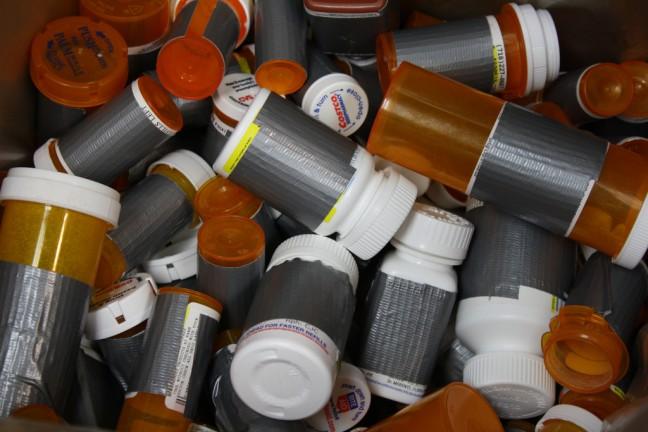With Wisconsin being no exception from the national trend of increasing opioid overdoses, Attorney General Brad Schimel introduced an advertising campaign to combat opioid abuse Saturday at the 1907 Club.
Schimel’s advertising campaign, “Dose of Reality,” seeks to provide Wisconsin citizens with information about the dangers of misusing painkillers.
Schimel said in a statement the campaign is invested in “hope and prevention.” It aims to win the battle against painkiller abuse to make the state “safer and healthier.”
Kitty Rhoades, secretary of Department of Health Services, said in a statement opioid painkiller overdoses caused 843 deaths in 2013, making up 45 percent of Wisconsin’s drug overdose deaths.
“This is truly a public health crisis, and one that can be eliminated through sharing information about the risks involved in misusing these medications” Rhodes said.
Prescription drugs cause more deaths than breast cancer, car crashes in state
Mary Adele Revoy, Sheboygan County Family Resource Center coordinator of resources and development, also called the opioid addiction problem a “health crisis” and said there is currently a misunderstanding of who falls victim to the addiction. She said contrary to popular belief, it is not just “bad kids” who are becoming addicted.
Revoy said many people are “shocked” to hear that many middle and upperclass young adults are addicted to opioids.
Revoy said the highly addictive nature of opioids makes it extremely difficult for people to escape their addictions. She also said kids often start by abusing prescription painkillers before moving on to heroin.
“Whether it is because they can’t afford the bills [or] they can’t find the pills, heroin seems to be cheaper and more accessible,” Revoy said. “We hear stories of young ladies, young men — all of them — using, abusing, overdosing, getting arrested. It doesn’t really seem to be more popular or less popular with any group of people.”
According to Revoy, the 1907 Club has served alcohol addicts by offering Alcoholics Anonymous and other programs to the Sheboygan community in the past, but now plans to expand its program offerings to assist recovering narcotic addicts. She said they are looking to start a Narcotics Anonymous group and a program for family members of narcotic addicts.
Looking at prevention and targeting the root of addiction is “great,” but looking at treatment options for painkiller and heroin addicts going forward is also important, Revoy said. The strength of a heroin addiction makes intense treatment necessary, but the limited coverage most insurance companies offer makes recovery more difficult.
“Insurance companies currently only cover about 28 days and that is nowhere near what a heroin addict needs” Revoy said. “I think policy changes in insurance and what [medical expenses] will be covered … will be key.”
Revoy said the opioid addiction is not rooted in an “inability just to say no,” but can actually be attributed to a “chemical change” in the body of an addict. She said this change causes a “health change” in the individual.
Wisconsin Medical Society President Jerry Halverson said in a statement he supports Schimel’s campaign and called the impact of opioid addiction “devastating.”
“Too often in circumstances like these, it’s easy to think it’s someone else’s problem,” Halverson said. “But this epidemic affects people in every demographic throughout our state — all ages, all incomes, all races and all geographies — and no one can afford to sit on the sidelines if we are to bring this crisis under control.”














